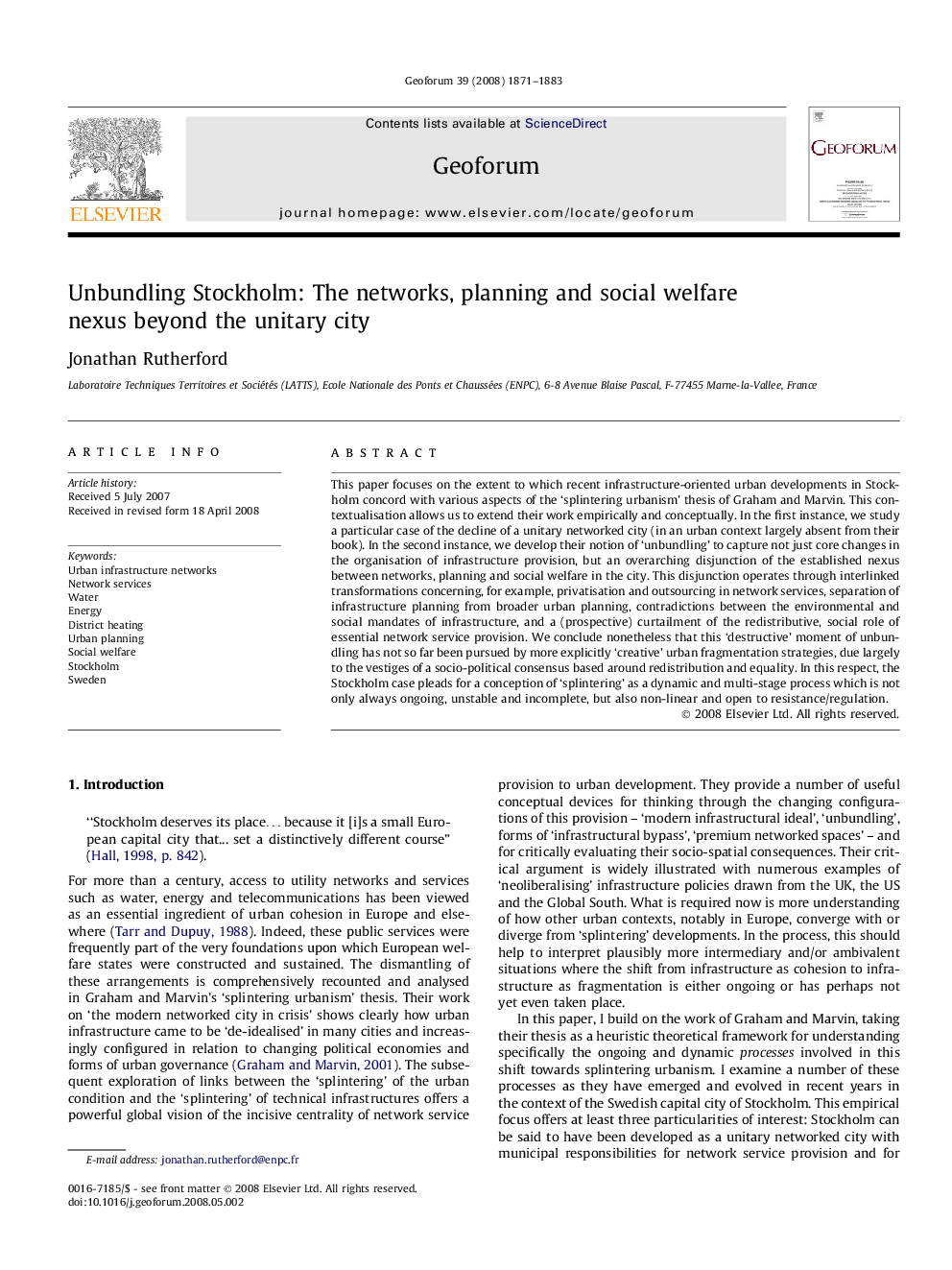| Article ID | Journal | Published Year | Pages | File Type |
|---|---|---|---|---|
| 5074840 | Geoforum | 2008 | 13 Pages |
Abstract
This paper focuses on the extent to which recent infrastructure-oriented urban developments in Stockholm concord with various aspects of the 'splintering urbanism' thesis of Graham and Marvin. This contextualisation allows us to extend their work empirically and conceptually. In the first instance, we study a particular case of the decline of a unitary networked city (in an urban context largely absent from their book). In the second instance, we develop their notion of 'unbundling' to capture not just core changes in the organisation of infrastructure provision, but an overarching disjunction of the established nexus between networks, planning and social welfare in the city. This disjunction operates through interlinked transformations concerning, for example, privatisation and outsourcing in network services, separation of infrastructure planning from broader urban planning, contradictions between the environmental and social mandates of infrastructure, and a (prospective) curtailment of the redistributive, social role of essential network service provision. We conclude nonetheless that this 'destructive' moment of unbundling has not so far been pursued by more explicitly 'creative' urban fragmentation strategies, due largely to the vestiges of a socio-political consensus based around redistribution and equality. In this respect, the Stockholm case pleads for a conception of 'splintering' as a dynamic and multi-stage process which is not only always ongoing, unstable and incomplete, but also non-linear and open to resistance/regulation.
Related Topics
Social Sciences and Humanities
Economics, Econometrics and Finance
Economics and Econometrics
Authors
Jonathan Rutherford,
